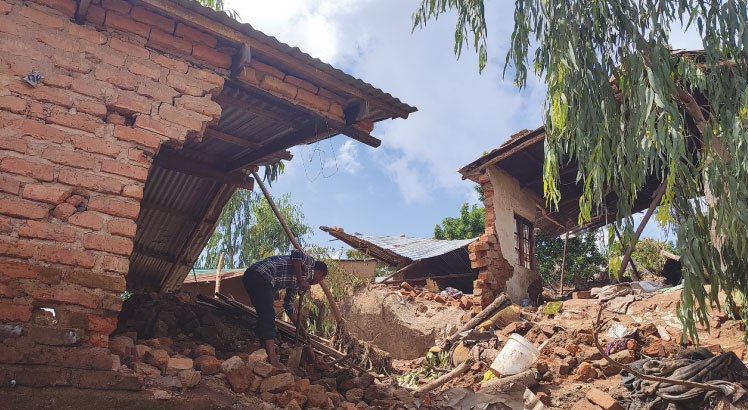The villager who champions conservation
 Kachiwala Nkhoma hails from Manjondo Village in Traditional Authority Simulemba in Kasungu.
Kachiwala Nkhoma hails from Manjondo Village in Traditional Authority Simulemba in Kasungu.
The 45-year-old tobacco farmer relocated from Kasiya Village in Lilongwe. Like most other growers, his tobacco farming business led to the loss of trees.
“When I settled on this land in 1992, there were many indigenous trees. But we had to clear the land for the farm and our house,” he recalls.
It was not until he was sensitised to the dangers of wanton tree cutting by a forestry extension worker in the area, that he decided to become an ambassador of change. He is now a shining example to people in Manjondo and surrounding villages.
“The forestry extension worker advised me to plant trees annually. In the first year I planted 200 trees on my farm. The following year, I planted 2 400 tree seedlings,” says Nkhoma.
Married to two wives with 16 children, Nkhoma says he plans to plant more trees in future.
“Of course, this year things did not work as expected because of water and seedling problems. I will only manage slightly over a thousand tree seedlings. The problem is that most water sources dried up quickly,” he explains.
Instead of having a brick fence as most households do, Nkhoma’s house is surrounded by trees, such as acacias, India and mtangatanga. As a tobacco farmer, he says it is very important to replace trees that are cut.
“In Kasungu, many farmers grow tobacco. This crop needs trees. Right from nursery, you need trees for erecting sheds and more trees for curing the leaf, in case of flue cured tobacco. Annually, a lot of trees are cut down to cure tobacco.”
Some tobacco farmers in Manjondo Village are emulating his example and have started growing trees, according to area forestry extension worker Tenas Mphanyama.
“We regard him (Nkhoma) as our ambassador of change. He has planted more trees on his own than most farmers,” says Mphanyama.
Apart from tobacco, Nkhoma grows maize, soya beans and groundnuts. He also rears chickens and goats. He says he feels bad to see people cutting down trees without replacement.
According to the district forestry office, tobacco is one of the contributing factors to high deforestation in Kasungu.
“I think if all farmers could emulate the example, as a district we would not have bare land,” says Mphanyama.
In the wake of high deforestation rate, experts say planting of trees and conserving the environment will mitigate harmful effects of climate change.





